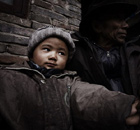Asia-Pacific
Japanese students petition to abolish nuclear arms
(Xinhua)
Updated: 2010-03-10 14:35
 |
Large Medium Small |
TOKYO - A group of high school students in Tokyo are collecting signatures from people to support a world without nuclear arms to submit to the review conference of the Nuclear Non-Proliferation Treaty in May in New York, the Kyodo News agency reported on Wednesday.
So far the group, consisting of more than 10 students, have collected some 3,500 signatures since last summer in their free time on weekends and mainly in the busy, youthful districts like Harajuku in central Tokyo.
The students ultimately aim to collect 10,000 signatures to support their non-nuclear cause.
Nishinohara, along with some of her peers also plans to visit a number of US high schools to gauge and discuss the sentiments and opinions of her US peers.
Wednesday's news of the high school student's anti-nuclear campaign comes a day after Japan's Foreign Ministry confirmed the existence of three Cold War-era secret agreements between Tokyo and Washington that included stipulations allowing the US military to bring nuclear weapons onto Japanese territory.
One of the pacts, signed in 1960, effectively allowed the United States to bring nuclear weapons into Japan without prior consultation.
The confirmation ended decades of official denial that such secret pacts existed, negating the significance of Japan's three Non-Nuclear Principles of: Non-possession, Non-production, and Non-introduction of nuclear weapons, principles embraced by many citizens as post-war Japan become a staunch advocator of nuclear non-proliferation in the world.
The student's anti-nuclear campaign brings to light the potentially devastating affects of nuclear weapons. Atomic bombs were dropped on both Hiroshima and Nagasaki cities at the end of World War II in 1945, killing hundreds of thousands of Japanese civilians.










